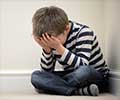Study reveals parental burnout from perfectionism harms both parents and children's mental health, urging reevaluation of parenting standards.

Feeling Pressure to Be a Perfect Mother Relates to Parental Burnout and Career Ambitions
Go to source).
Key Insights from "The Power of Positive Parenting" Study
The findings of a survey conducted between June 15 and July 28, 2023, involving over 700 parents across the nation, are outlined in the latest report titled "The Power of Positive Parenting: Evidence Supporting Parental and Child Well-Being." The data shows that:- Fifty-seven percent (57%) of parents self-reported burnout.
- Parental burnout is strongly associated with internal and external expectations, including whether one feels they are a good parent, perceived judgment from others, time to play with their children, the relationship with their spouse and keeping a clean house.
- The more free play time that parents spend with their children and the lighter the load of structured extracurricular activities, the fewer mental health issues in their children (i.e. anxiety, depression, OCD, ADHD, bipolar disorder).
- Parents’ mental health and behaviors strongly impact their children’s mental health. If their children have a mental health disorder, parents report a higher level of burnout and a greater likelihood for them to insult, criticize, scream at, curse at and/or physically harm their children (i.e. repeated spanking). Higher levels of self-reported parental burnout and harsh parenting practices are associated with more mental health problems in children.
‘Over 57% of parents experience burnout, leading to adverse effects on children's mental health. #positiveparenting #parentalwellbeing #medindia’





The Impact of Social Media and the Culture of Achievement on Parental Burnout
“I think social media has just really tipped the scales,” said Gawlik, an associate clinical professor at the Ohio State College of Nursing. “You can look at people on Instagram or you can even just see people walking around, and I always think, ‘How do they do that? How do they seem to always have it all together when I don’t?’“We have high expectations for ourselves as parents; we have high expectations for what our kids should be doing. Then on the flipside, you’re comparing yourself to other people, other families, and there’s a lot of judgment that goes on. And whether it’s intended or not, it’s still there.”
Data from the study shows that force of expectations from what Gawlik calls a “culture of achievement” leads to burnout (a state of physical and emotional exhaustion), which in turn leads to other, potentially debilitating issues.
“When parents are burned out, they have more depression, anxiety and stress, but their children also do behaviorally and emotionally worse,” said Bernadette Melnyk, PhD, FAAN, vice president for health promotion and chief wellness officer at Ohio State. “So it’s super important to face your true story if you’re burning out as a parent and do something about it for better self-care.”
Gawlik and Melnyk’s new report brings critical updates to their initial study in 2022, which measured working parent burnout during the height of the COVID-19 pandemic. Gawlik and Melnyk created a first-of-its-kind Working Parent Burnout Scale, a 10-point survey that allows parents to measure their burnout in real time and use evidence-based solutions to help.
Advertisement
“Positive parenting is when you give your children a lot of love and warmth, but you also provide structure and guidance in their life,” Melnyk explained. “You gently teach them consequences of behaviors. So that is a much better goal to shoot for being a positive parent than a perfect parent.”
Advertisement
- Connection and active listening
- Catching, checking and changing negative thoughts into positive ones
- Readjusting expectations for the parent and the child
- Reflecting and acting on priorities
Melnyk said these evidence-based approaches can help calm what she calls a “public health epidemic” of parental burnout.
“Parents do a great job caring for their children and everybody else, but they often don’t prioritize their own self-care,” Melnyk said. “As parents, we can’t keep pouring from an empty cup. If children see their parents taking good self-care, the chances are they’re going to grow up with that value as well. It has a ripple effect to the children and to the entire family.”
“As one parent told me,” Gawlik added, “‘I would much rather have a happy kid than a perfect kid.’”
Reference:
- Feeling Pressure to Be a Perfect Mother Relates to Parental Burnout and Career Ambitions - (https://www.ncbi.nlm.nih.gov/pmc/articles/PMC6230657/)
Source-Eurekalert















